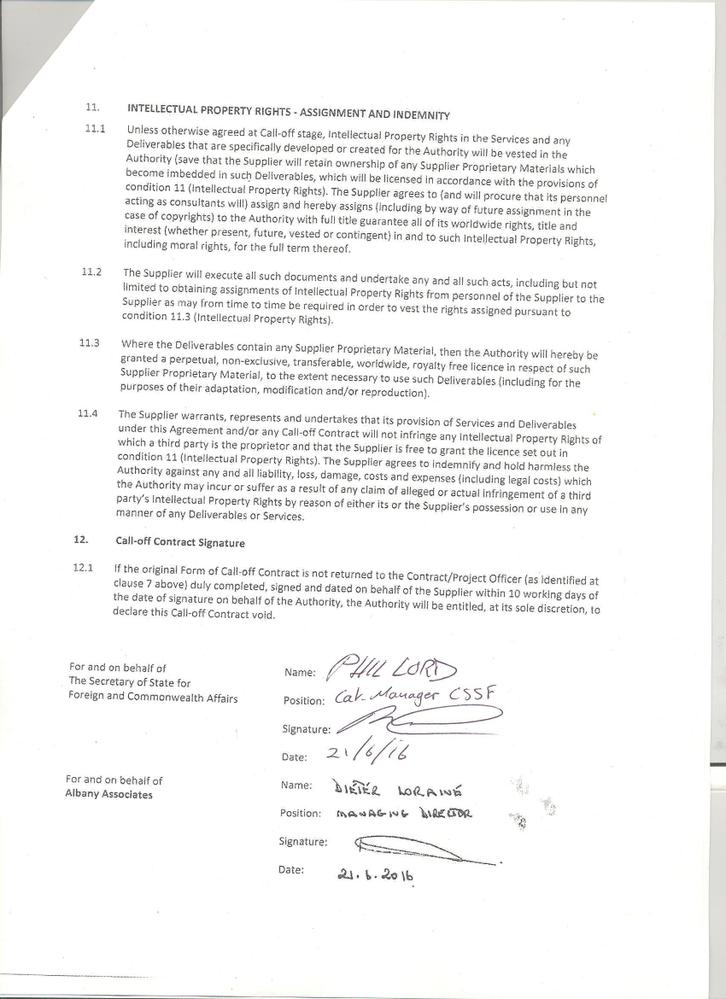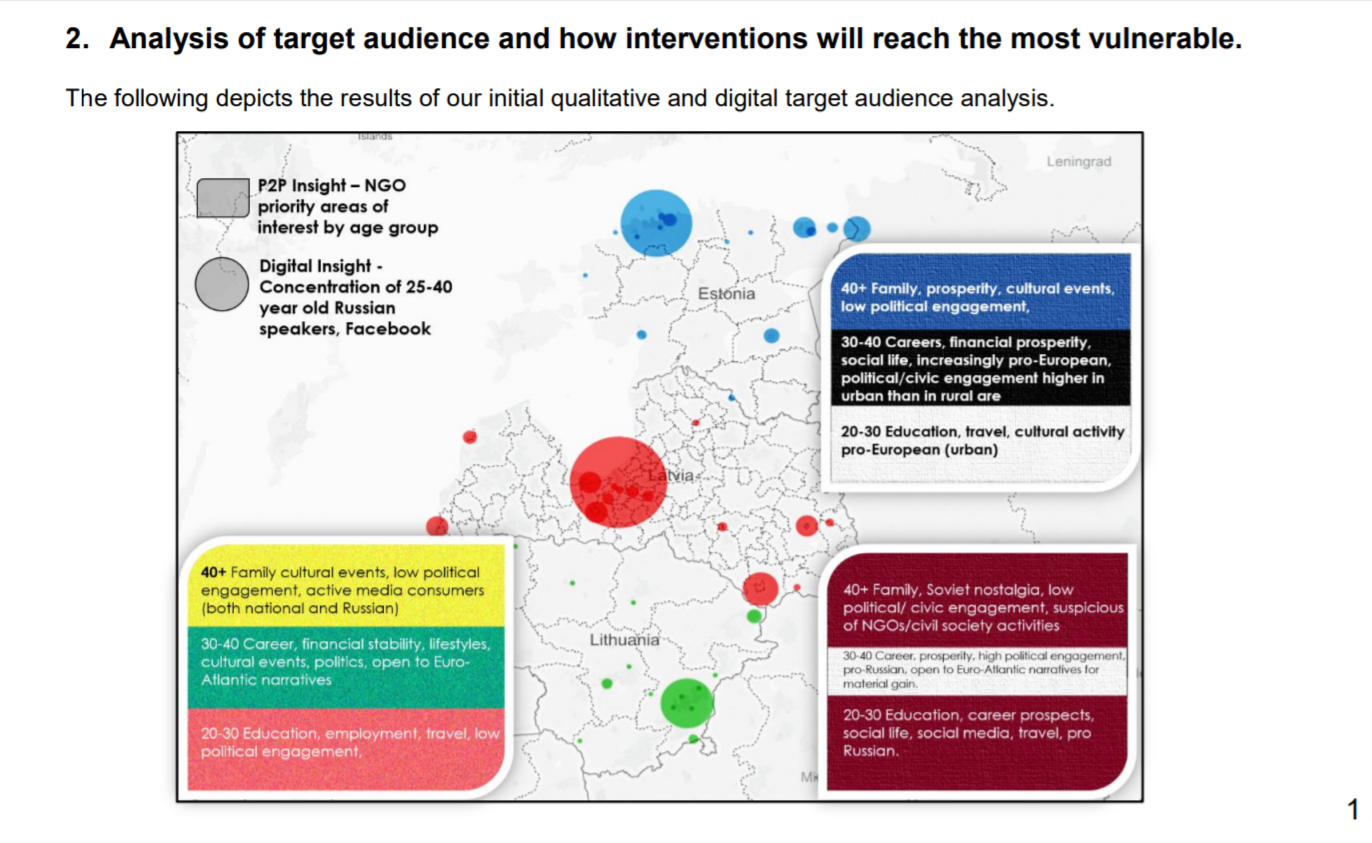LONDON — Standing against the scorching blue backdrop at the EU podium in late 2017, then British Prime Minister Theresa May mendaciously promised to “counter [Russian] disinformation” in all the former Soviet republics of Eastern Europe, Eurasia and the Baltics by pledging €110 Million ($130 Million) over five years to fight the Kremlin’s influence in the region.
A massive data leak published by the Anonymous hacktivist group this past February has revealed how some of that money was used to create and disseminate disinformation, alternate narratives and effectuate the outright manipulation of media by the UK’s Foreign, Commonwealth & Development Office (FCDO) through a number of partnerships with stalwart disinformation outfits like Bellingcat, established information warfare specialist firms like the Zinc Network among dozens more that were working in secret with the governmental entity responsible for promoting British interests around the world.
Several different operations dedicated to a specific region or country have been discovered so far, as reporters sift through the trove of documents. Highly sophisticated and disturbingly insidious propaganda campaigns to influence society, mold perceptions about Russia, and affect political outcomes were carried out by teams of Western media organizations, consultants, paid assets, and operatives from the Baltics to the shores of the Mediterranean.
The Open Information Partnership (OIP), as one of these far-reaching operations is named, received funding from the FCDO, according to RT, of at least £10 Million and was comprised of 44 partners, among which the aforementioned Bellingcat and Zinc, were joined by the Atlantic Council’s DFRLab and London-based NGO Media Diversity Institute and others.

Billed as a “diverse network of organisations and individuals united in our determination to expose and counter disinformation,” OIP’s partners had their agents strewn across Central and Eastern Europe to deliver on the scope of work delineated in its contracts with the FCDO, which would determine what locations to target at any given moment.
North Macedonia was selected early on and Zinc initiated the operation by identifying the largest media outlet in the country, MOST Network. The information warfare outfit and OIP partners approached DFRLab and Bellingcat to offer a two-week course on “cyber security training, mentoring on digital forensics, open source investigation and media ethics.” Although the documents don’t provide specific dates, it is inferred that the 2019 election in North Macedonia was what moved the FCDO to prioritize it at that time, given the choice between pro-EU and pro-Russia candidates.
Subversion in the Baltics
A recent RT exposé revealed disinformation efforts by the UK that predate May’s speech by at least a year, targeting ethnic Russians in Estonia, Latvia, and Lithuania. A 2016 request for proposal issued by the FCDO seeks contractors to “provide overt innovative soft power interventions that will foster better links between the United Kingdom and individuals in the Baltic States whose primary language is Russian.”
Ethnic Russians who live in the three Baltic countries compose about one-sixth of the region’s population. Estonia and Latvia never afforded them full citizenship after the collapse of the Soviet Union, rendering a full two-thirds of them “effectively stateless.” The document profiles the older generation of this particular demographic and warns its prospective partners that changing their attitudes might prove more difficult than it is worth. Instead, the FCDO suggests going after younger Russophones, given their “medium-high awareness, knowledge and interest of Euro-Atlantic narratives and ‘culture’” which “may make them more open to alternative narratives” and thus “less vulnerable to Russian propaganda.”
The extent to which Western propaganda mercenaries were willing to go in order to infiltrate Baltic cultural idiosyncrasies is made evident by one of the FCDO’s partners, Albany Associates, which has worked with the UK before, targeting children in Syria. Leveraging its track record of subverting young minds, Albany made a number of propositions in response to the FCDO’s request, including using the sons and daughters of the older ethnic Russians in the Baltics to “amplify a distinct “Euro-Baltic” identity.”

This would be accomplished by organizing a number of outreach activities, social media amplification strategies, and generally, “ideas and concepts of cultural outreach and strategic communications derived from methodological innovations proven in other relevant and/or similar contexts”.
Facebook would be used to “disseminate information on Baltic Euro-leaning heritage, advertise, aggregate and amplify the activities and media content” and “key dates and events of significance to Russian speakers, such as WWII celebrations” would be exploited to deliver distinctly anti-Russian sentiment.
All of these tactics would be expanded as the operation grew and incorporated other FCDO partners like Zinc, which offered “clandestine support” to people in the Baltic states who could be used to hone the propagandists’ reach. Essentially creating “influencers” by teaching them how to “develop, pitch and place articles with national and international media outlets” as well as receive training in digital marketing for their “chosen social media platform.”
Leave our grandparents alone
The breadth and scope of these operations are not limited to the spread of alternative narratives, however. A separate document from the FCDO disclosed the desire to dig deep into the psychological makeup of the ethnic Russians in the Baltics, seeking to fund research into the “socio-cultural background of individuals and their general perceptions and attitudes, and specifically their attitudes towards the UK and the West” for the benefit of British policymakers.
The document lists the main themes that this research should comprise, including “satisfaction with government, attitudes towards life and attitudes towards the future.” The FCDO wished to pinpoint their “current life motivations and desires” and “key interests,” such as hobbies; Insight into their “biggest fears” and how they interact with the media they are exposed to.
Such granular levels of information could only be dreamed of by Allen Dulles and the CIA’s disinformation efforts behind the Iron Curtain during the Cold War. But, today, our digitally-integrated world allows for such dystopian dreams to become a reality. At the same time, it makes exposing these operations that much easier.
From the Skripal affair to Navalny’s rise to the Russian Olympic doping scandal, all of which occurred after May’s speech in Brussels where she pledged to “call out hostile Russia,” these damning revelations about a concerted and continuous effort by a major Atlanticist power to seed unfavorable narratives through co-option and subversion against an enemy state should be enough to dispel any notions of truth in what the UK and allies like the United States tell its own citizens through its mainstream media outlets and the social media landscape it controls.
As independent, critical thinkers, instead of approaching media from the standpoint of fleshing out “fake news” through compromised fact-checking organizations or popular influencers, we might be better served by assuming everything we see and hear over these channels and platforms is an attempt to manipulate us with half-truths and skewed interpretations. It is up to us to trust our own ability to find out what is true and what is not and leave our grandpa out of it.
Feature photo | A young Lithuanian boy holds a US soldier’s rifle during the US-led ”Dragoon Ride II” military exercise in Kupiskis, Lithuania, June 12, 2016. Mindaugas Kulbis | AP
Raul Diego is a MintPress News Staff Writer, independent photojournalist, researcher, writer and documentary filmmaker.


